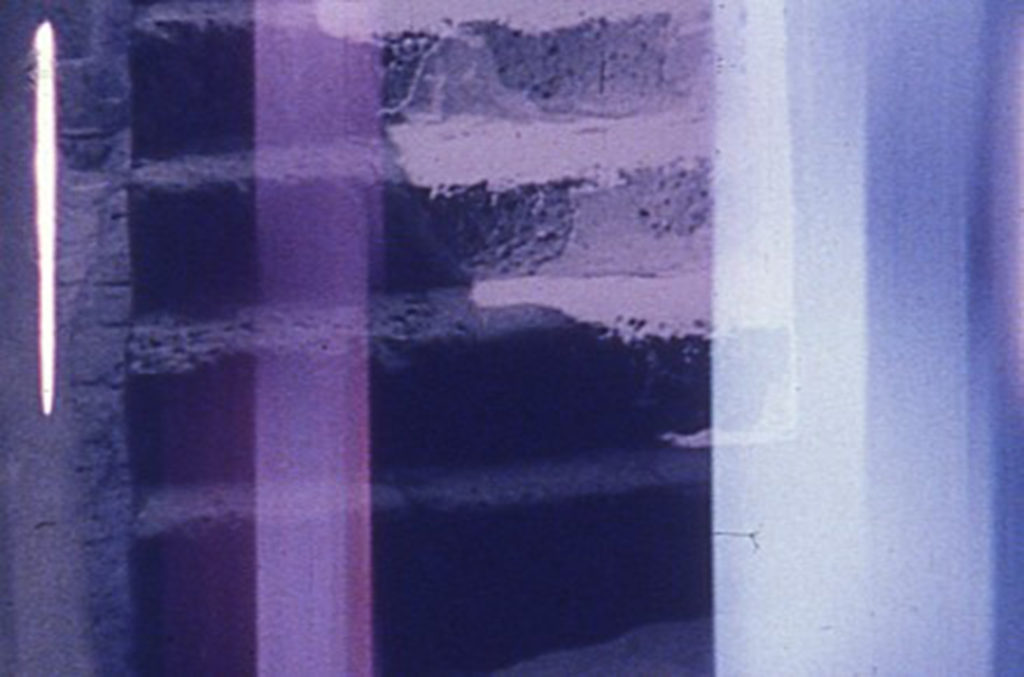Light Cone Scratch Projection: Vers La Lumière (Towards the Light)
Friday June 16, 2023, 20:30
Luminor Hôtel de Ville
20 rue du Temple 75004 Paris, France

Guest program by Francisco Algarín Navarro, editor of Lumière and programmer for Xcèntric – CCCB (Barcelona)
Joseph Plateau, who invented the phenakistoscope, the first device capable of producing the illusion of a moving image from a sequence of still images, provided a definition of the persistence of vision in 1829. In his research into visual physiology, he described the effects of light stimuli and colors on the retina, determining their duration to equal one tenth of a second. Yet this value is not constant: it increases as the eye adapts to darkness, hence the sensation of movement which is characteristic of a film projection. Plateau thought that the eye sees at a rate of ten images per second and that, when they are superimposed, the brain links them into a single, continuous, moving image.
This screening, conceived as a gradual journey toward light, takes as its starting point the research of Plateau, who, in 1828, while researching the slowness of perception, spent several days looking directly at the sun at 25-second intervals until he gradually lost his sight. However, during his forty years of blindness, Plateau retained some subjective visual ability. This program, inspired by this very kind of vision, can be followed with or without previous knowledge of the films it consists of. Their sensuous qualities will guide us: the alternation of warm, magenta, blue or white tones, soft color spectra, and their dependence on tropical or arctic light; or the gradual increase of scale, from door and window frames to the immensity of a landscape that is both enclosing and liberating; the in-camera transition fades or the exposures, which can be very long or very short, as well as the rhythmic variations between connected shots which seem to thaw, to mold, to superimpose, or to alternate climatic stillness, luminous pallor and rhythmic gentleness, as in Plateau’s phenakistoscope; or the sounds, words and songs which, like afterimages, keep echoing in the silent films which follow them.
Light Cone’s collection is a living organism that encompasses a broad intersection between materialist or structuralist films and those whose concerns are not primarily formal, but personal, political or even narrative. These paths — and the possibilities of such intersections — have remained open since 1982, when Miles McKane and yann beauvais launched the Scratch screenings, an affirmation of difference. It is to them that this screening is dedicated, in search of new passers-by.
Francisco Algarín Navarro